Coenzyme Q10
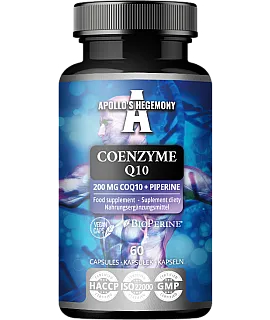
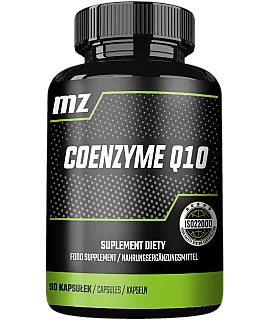
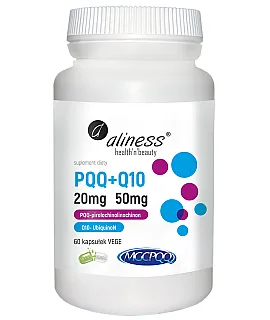
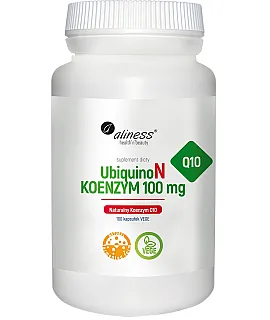
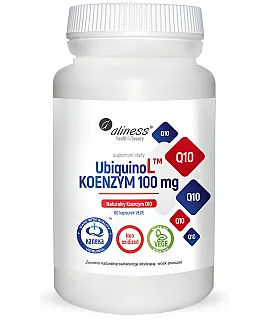
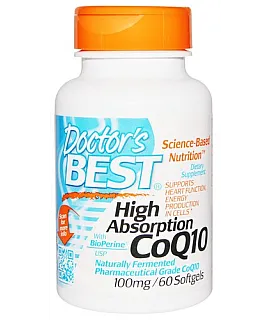
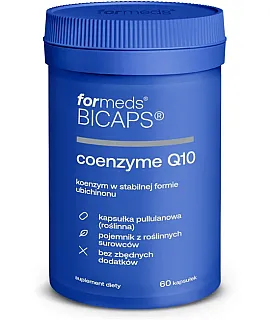
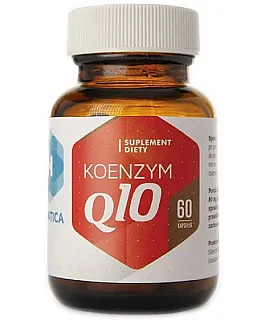
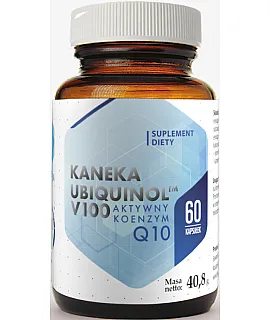
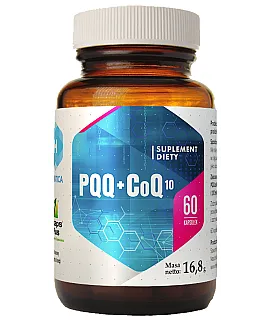
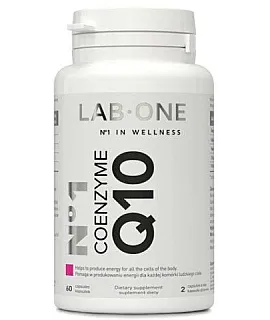
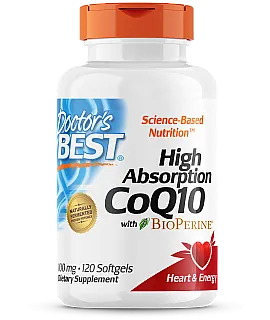
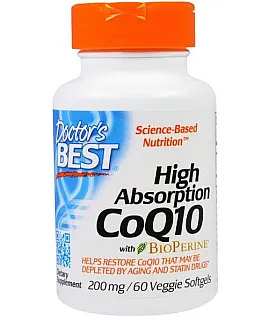
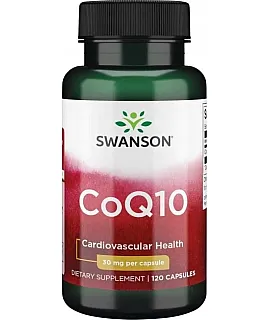
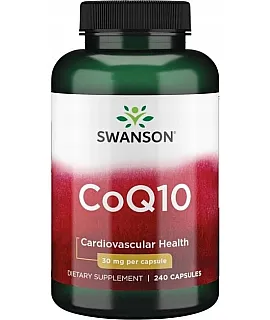
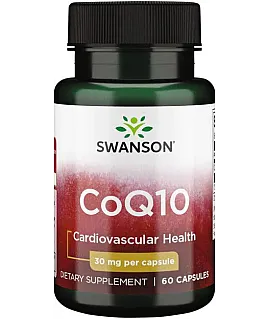
Coenzyme Q10 is a natural substance that plays a key role in energy production in every cell of the human body. This powerful antioxidant protects cells from damage caused by free radicals, responsible for the aging process. Coenzyme Q10 is essential for the proper functioning of the body, and its levels decrease with age. Its levels can be replenished from dietary supplements in the form of convenient capsules.Read more
What is coenzyme Q10 and what are its properties?
Coenzyme Q10, also known as ubiquinone or CoQ10, is a naturally occurring substance in the human body. It is fat-soluble and plays a key role in energy production at the cellular level. Coenzyme Q10 is essential for the proper functioning of mitochondria, which are responsible for the production of ATP - the main source of energy in cells.
In addition to participating in the energy production process, coenzyme Q10 is a powerful antioxidant. It protects cells from damage caused by free radicals, which contribute to the aging process. Taking care of good levels of coenzyme Q10 helps maintain a healthy lifestyle and supports the proper functioning of the body.
Coenzyme Q10 is particularly important for heart health. High concentrations of this compound are found in the heart muscle, where it supports the production of energy necessary for proper cardiovascular function. Coenzyme Q10 supplementation can be beneficial for those who want to ensure healthy heart function.
Coenzyme Q10 deficiency and its consequences
The level of coenzyme Q10 in the body decreases with age, which can lead to deficiencies of this important substance. Coenzyme Q10 deficiency can manifest as fatigue, weakness, lowered immunity and concentration problems. Long-term deficiency can contribute to the development of chronic diseases such as heart disease and diabetes.
Coenzyme Q10 deficiency can also be caused by the use of certain medications, such as statins, used to treat high cholesterol. Statins can reduce the body's natural production of coenzyme Q10, so people taking these drugs should consider supplementation.
To prevent coenzyme Q10 deficiency, it is worthwhile to ensure a varied diet rich in natural sources of the compound, such as fatty fish, vegetable oils and nuts. In the case of increased demand or difficulty in providing adequate amounts of coenzyme Q10 from the diet, it is worth reaching for dietary supplements containing this valuable substance.
Dosage and form of supplements with coenzyme Q10
Dietary supplements with coenzyme Q10 are usually available in capsule or tablet form. A typical daily dose ranges from 30 to 200 mg, depending on individual needs and health. The most common doses are 60 mg, 100 mg or 200 mg per day.
Coenzyme Q10 is best taken with a meal containing fat, which increases its absorption. Follow the directions on the package and do not exceed the recommended daily dose unless advised by a doctor.
Various forms of coenzyme Q10 are available, such as ubiquinone or ubiquinol. Ubiquinol is a more bioactive form of coenzyme Q10 and may be better absorbed by the body, especially in older people. Before choosing the right supplement, it's a good idea to consult your doctor or pharmacist to select the product best suited to your individual needs.
Contraindications and precautions
Dietary supplements containing coenzyme Q10 are generally considered safe and well tolerated. However, as with any supplement, there are some contraindications and precautions to be aware of.
People taking anticoagulant medications, such as warfarin, should consult a doctor before starting coenzyme Q10 supplementation, as it may affect the effects of these drugs. Similarly, people with chronic diseases such as diabetes or heart disease should consult a doctor before starting supplements.
Pregnant and breastfeeding women should exercise caution and consult a doctor before starting coenzyme Q10 supplements. Although there is no evidence of harmful effects of coenzyme Q10 during pregnancy, it is always better to exercise caution and use supplements only under medical supervision.
The most important information about coenzyme Q10:
- Coenzyme Q10 is a natural compound essential for cellular energy production and protection against oxidative stress.
- Coenzyme Q10 levels decline with age, which can lead to deficiencies and various health problems.
- Coenzyme Q10 supplementation is recommended for people who want to take care of their heart.
- Typical doses of coenzyme Q10 are 30-200 mg per day, preferably taken with a meal containing fat.
- Consult your doctor before starting supplementation, especially if you are taking medications or have a chronic disease.